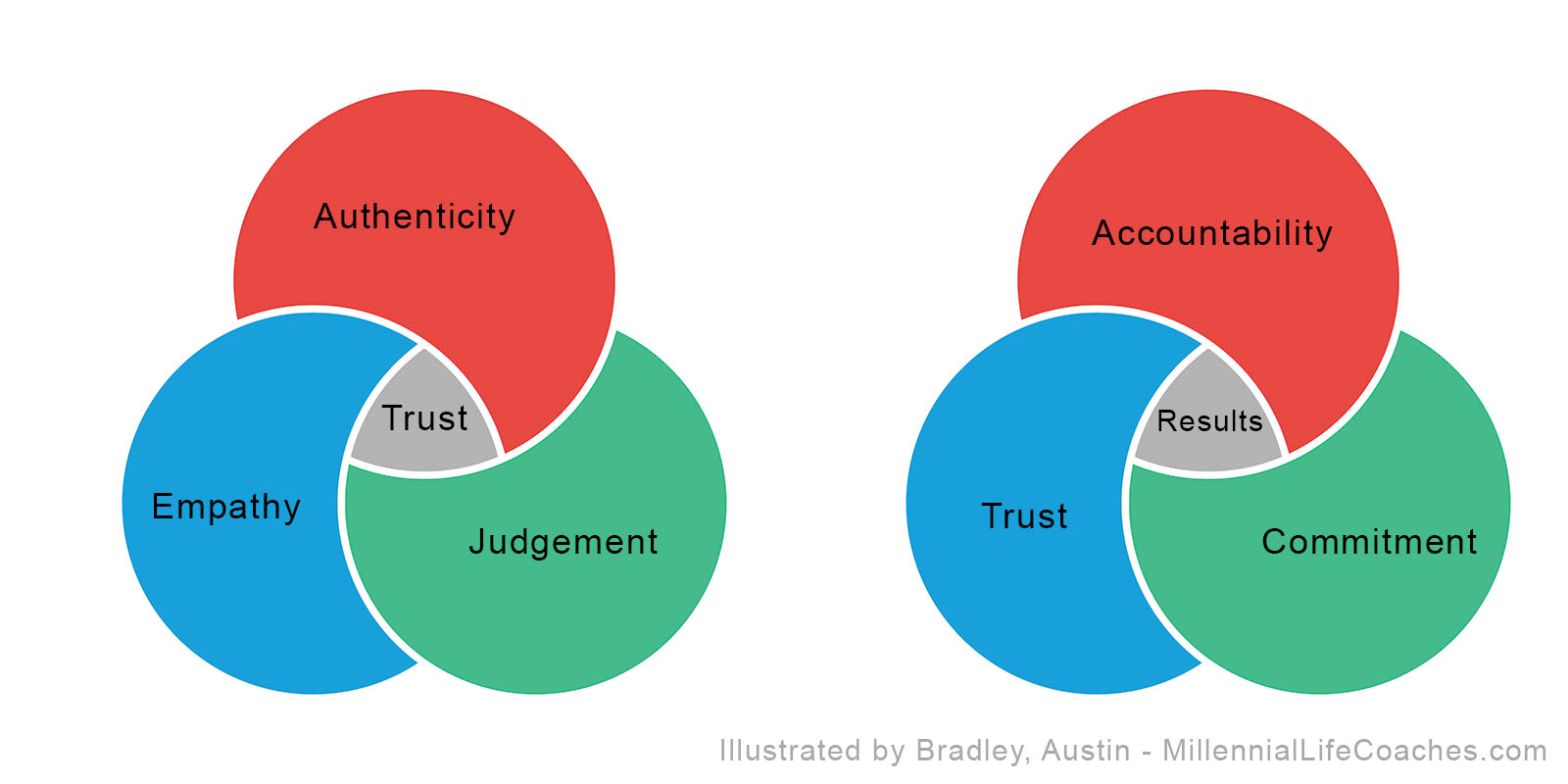Uncategorized
Diversity and Inclusion – The Perspective Hubris of the Diverse Team
By Austin Bradley – March 4th, 2021
We have all heard this idea that the best teams are those that are the most diversified – an amalgamation of women, men, old, young, black, and white. Thus, perpetuating the need to increase diversity in the workplace. However, this synergistic “efficiency” is not inherent in a diverse team and may hastily stymie any positive result or advancement, if not actively managed. To pit a heterogeneous team against one comprised of those primarily of the same tribe (1), the homogeneous team will likely outperform their competitors with relative ease if a single key factor is missing from the diverse team – trust. But, how can this be? How can trust act as such an invaluable variable to a diverse team’s success? To better understand the “how” we must first understand “why” trust acts as a fundamental dynamic in team success.
While working for a Global 500 Energy Management company, I had the grand opportunity of being the Performance Systems (SPS) Manager for our plant in Peru, IN. This position of leadership placed me at the helm of continuous improvement activities plant-wide, and the mission was clear – ensure we maintain a higher performance rating during our upcoming SPS audits than in years previous. To do this, we had to engage our functional team champions, including: Human Resources, Engineering, Supervision, and other key players within the leadership team. To the company’s recognition, this team conglomerate showcased a demographic coalesce seldom experienced in industry; comparatively speaking to other world-class companies I have been a part of and helped manage. As a result of our teaming and program execution, during our 1st party audit, we scored well over 100 points higher than in previous years. A tumultuous feat, indeed. This success ricochet throughout out the organization. Our beckoning secret – trust.
A team leveraging trust wields several advantages, including lock-step cascaded communication. A team that can communicate well and often is intimately immersed with the project. To reference, our SPS team engagingly participated in frequent value-added short interval meetings, further sculpting destination clarity, and adding to the success of our resulting scorecard. This type of agile (2) information flow will hasten decision making, garner buy-in, and better align resourcing means towards the project, resulting in a valued product (or service) for the end-customer or associated stakeholders. Communication will also set the foundation for both commitment and accountability. Unlike diverse teams that hold back useful information out of fear of removing themselves from their comfort zones due to a low trust environment, teams of high trust and effective communication are vocal and willingly spread their perspectives. Moreover, this team of high trust will actively dispel groupthink (3) and will hold each other accountable when the expectation is misaligned. Even if constructive disagreement beguiles the committed audience, the communicative act alone will serve as a break-through moment as opinions are shared, thus, laying the groundwork for a plan of action of which the team will readily commit.
To put succinctly, “You won’t buy-in unless you weigh-in” (4), and effective teams understand this well.
This trust mix bolstering normative commitment, communication, and accountability is the very recipe for a cohesive high performing team. Without this trust factor, a diverse team will struggle relative to the homogeneous team in which trust is tacit and willfully awarded. So, how can a diverse team overcome this trust hurdle, should one exist?

At its core, trust is driven from a few critical attributes – judgement, authenticity, and empathy. Consider any past situation in which there were gaps in trust between team members. It can be said with certainty that at least one of these three trust-drivers were low amongst the team.
The team must believe in each other’s logic. Trusting teams understand and believe in their fellow peer and her or his sound judgment. If you are in a diverse team that struggles in this area, emphasis the use of data to drive influence.
A trusting cohort must show empathy towards one another. If a team believes you truly care for their opinions, they will be more prone to admonish their perspective, which in-turn will ramp up the information pool and produce a better outcome. Teams lacking in empathy often disregard their peer’s input for preference of their own and are more often pushing their own agenda which will fundamentally dampen the health of the team and potential result. To lessen these effects, manage the team’s inclusivity and actively encourage sincere support for each other’s input while always keeping this idea of teaming before intrinsic motivations at the forefront.
Moreover, those in teams that exhibit high levels of trust are not afraid to be vulnerable and will not shy away from acting out their truest most authentic selves – quirks and all. Considering your demeanor after work hours, is there a drastic shift in your personality? If so, this act of authenticity may need to be an introspective focal point as you continue to develop as a trusted team member. If your team believes you are portraying your most authentic and fully disclosed persona, they will trust you as a leading or influential peer; although authenticity is a significant trust driver, it should be noted that your personal sensitivities and positions should be appropriately measured, less the dismay of attending members.
Trust. One of the single most important factors in determining the magnitude of a team’s result attainability. It can be stated with veracity that a diverse team will struggle to best one of homogeneity if, and only if, inclusion is not actively managed, and a sense of trust has not been developed within the team. The scope conceived from a trusting team of black, white, women, men, young, old, the cocktail is the universal panacea that all performing teams must strive to generate to extinguish the inexorable hubris associated to these valued teams.
- Greene, Joshua. Moral Tribes: Emotion, Reason, and the Gap between Us and Them, “Chapter 1”. Audible: An Amazon Company. <https://www.audible.com/pd/Moral-Tribes-Audiobook/
- Rigby, Darrell K. Sutherland, Jeff. Takenuchi, Hirotaka. “Embracing Agile”. Harvard Business Review. May 2016 Issue. < https://hbr.org/2016/05/embracing-agile>
- Psychology Today. Groupthink – “Why Groupthink Happens”. 2020 Sussex Publishers, LLC. <https://www.psychologytoday.com/us/basics/groupthink>
- Lencioni, Patrick. The Advantage, “Chapter 3”. Audible: An Amazon Company. <https://www.amazon.com/Advantage-Organizational-Health-Everything-Business/dp/1491510803>

